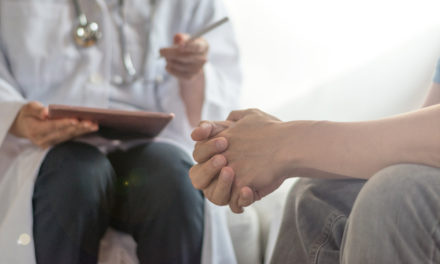
Sinai Urban Health Institute Receives $100,000 Cigna Foundation Grant
Sinai Health System and its community-based research arm Sinai Urban Health Institute (SUHI) received a $100,000 grant from the Cigna Foundation to support efforts to address food insecurity issues on Chicago’s West Side. The funding will allow SUHI’s ConnectED program to utilize Community Health Workers (CHWs) to screen Mount Sinai Hospital emergency department patients for social needs, including food insecurity, help connect those in need with a wide range of food and nutrition resources and benefits, and follow-up with patients to ensure they were able to access these resources.
Sinai Health System and SUHI are members of Westside United (WSU), a healthcare and community collaboration working to improve health by addressing inequality in healthcare, education, economic vitality and the physical environment using a cross-sector and place-based strategy. Westside ConnectED is WSU’s comprehensive population health strategy that works to identify and address the social issues impacting the lives of patients coming into emergency departments at hospitals like Mount Sinai Hospital.
“Mount Sinai Hospital is a safety net health provider in the North Lawndale community on Chicago’s West Side, where 37 percent of households are food insecure,” said Helen Margellos-Anast, President of SUHI. “This grant is going to allow us to better identify food insecure families and connect them to places such as food banks, food assistance programs, and programs that offer fresh produce and teach people the skills needed to improve overall nutrition and well-being.”
A CHW is a frontline public health worker, traditionally hired from the community he or she serves. Highly trained in motivational interviewing and patient navigation, CHWs use their skill set, as well as their knowledge of the culture, community barriers and assets, life experiences, and language of patients to quickly form rapport. This combination of knowledge and being a trusted member of the community allows for honesty during screening, and aids in the effective navigation of people to the resources they need.
The Cigna Foundation’s generous grant will support the work of a CHW in the Mount Sinai ED and the ED step down units, and will also support supervision, program coordination, data management and evaluation costs. With the Cigna Foundation’s support, Sinai will be able to place an emphasis on families with children who screen positive for food insecurity, connecting them to vital resources. The Cigna Foundation’s support will also allow SUHI to develop and solidify healthcare-community based partnerships to address food insecurity, and to evaluate the effectiveness of program efforts by supporting a part-time evaluator to track our progress on the metrics.
“Too many of our neighbors struggle to feed their families, and that’s why Cigna is proud to support the important work the Sinai Urban Health Institute is doing to address food insecurity in Chicago,” said Brian Marsella, Midwest market president for Cigna. “We are committed to improving the health, wellbeing and peace of mind of the communities we serve, and ensuring people have access to nutritious meals is an essential part of our mission.”
“Sinai’s ConnectED model goes beyond just distributing a list of resources or referrals to patients, instead taking a more individualized approach in connecting families with a CHW, a person who engages them personally, and guides them through the health and social service system,” adds Stacy Ignoffo, Director of Community Health Innovations at SUHI. “Our CHWs will break down barriers to accessing resources, including working through issues of embarrassment that often keep people from accessing emergency food resources. Access to the appropriate resources, combined with a CHW to help coach and navigate the system, will lead to lasting improvements in nutrition and health.”






